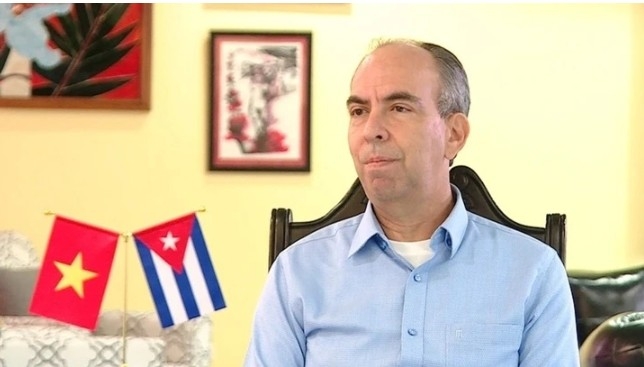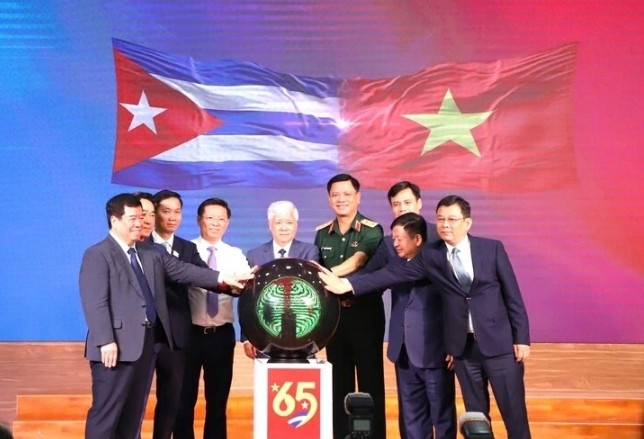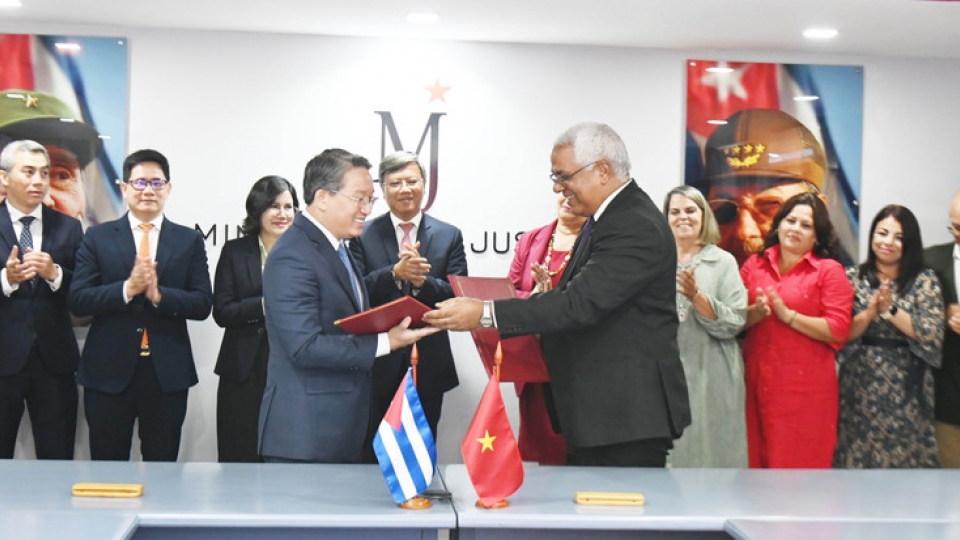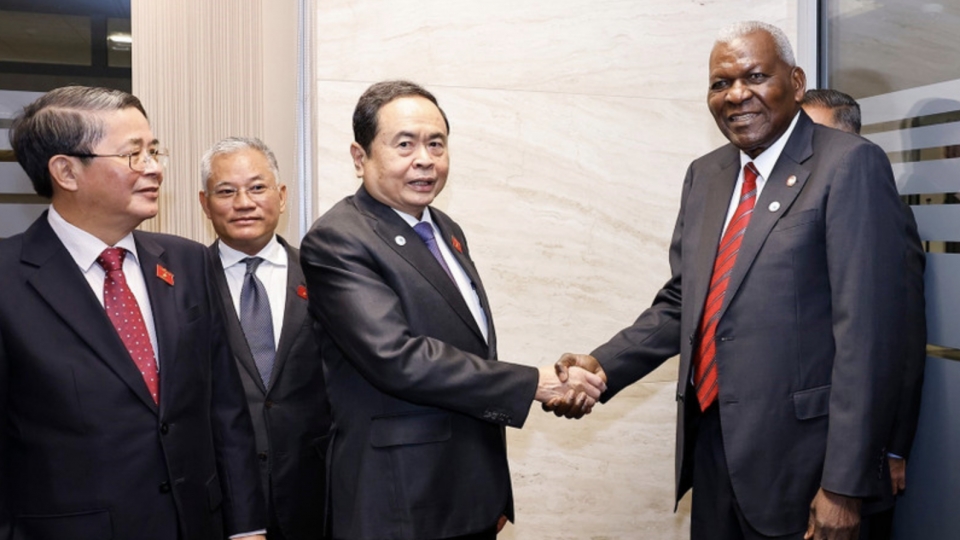Cuban Ambassador: Vietnamese support goes beyond expectations
VOV.VN - Cuban Ambassador to Vietnam Rogelio Polanco Fuentes has highlighted that the fundraising campaign by the Vietnamese people exceeded imagination and provided strong encouragement to the Cuban people.

Cuban Ambassador to Vietnam Rogelio Polanco Fuentes expressed his deep appreciation for the fundraising campaign “65 Years of Vietnam–Cuba Friendship” under the framework of the Vietnam–Cuba Friendship Year 2025.
He emphasized that the support from the Vietnamese people exceeded all expectations, not only in financial terms but also as a significant source of encouragement for the Cuban people. As of 11 a.m. on August 15, the program had mobilized over VND125 billion from nearly 590,000 contributors, reaching the minimum target within just 30 hours of launch.
The Ambassador affirmed that the Cuban Embassy stands ready to coordinate with Vietnamese agencies to ensure the funds are deployed effectively, creating the greatest possible impact.
He praised the initiative by the Vietnam Red Cross Society, in cooperation with the Vietnam Fatherland Front and mass organizations, as a testament to the longstanding friendship between the two nations. Ambassador Polanco Fuentes stated that the bond between Vietnam and Cuba was nurtured by leaders Fidel Castro and Ho Chi Minh, along with successive generations of citizens, and is now manifested in concrete actions by Vietnamese people to assist Cuba despite the thousands of kilometers separating the countries.
On current challenges, the Ambassador noted that his nation faces difficulties across multiple socio-economic fields due to sanctions and limited resources. Electricity remains the most urgent issue, with 90% of production dependent on thermal power while the country lacks sufficient oil. Cuba is heavily investing in renewable energy, particularly solar power, to ensure energy sovereignty. Food security is another priority; Cuba imports most of its food but faces foreign currency shortages that hinder domestic supply. Technical support and the Vietnamese rice seed project have helped Cuba boost production and enhance food self-sufficiency.
Healthcare constitutes the third area of concern, as Cuba can currently meet only about 60% of domestic pharmaceutical needs, mainly due to imported raw material shortages. The Ambassador stressed that Cuba and Vietnam will cooperate to produce Cuban-technology pharmaceuticals in Vietnam through joint ventures to tackle these long-term challenges. Meanwhile, tourism, a key source of revenue, has also been affected by restrictions.

Regarding the use of the funds raised in Vietnam, Ambassador Polanco Fuentes explained that Vietnamese and Cuban competent agencies would collaborate to implement the program transparently and ensure maximum benefit for Cuban citizens. He emphasized that even now, the contributions carry immense significance, thereby inspiring Cuba in its ongoing recovery and development.
Looking back at historical ties, the Cuban diplomat recalled key milestones. Cuba was the first Latin American country to establish diplomatic relations with Vietnam in 1960, covering the operating costs of the Vietnamese Embassy in Havana and mobilizing international support for Vietnam’s struggle.
In 1969, Cuba opened an embassy in the Tay Ninh liberation zone, sharing hardships with the Provisional Revolutionary Government of South Vietnam, and Fidel Castro once crossed the 17th parallel to the Quang Tri liberation area to support Vietnamese soldiers.
He also hailed tangible Cuban support, including transporting goods to Vietnam amid wartime, participating in construction projects such as the Moc Chau cattle farm, Luong My chicken farm, Thang Loi Hotel, and Dong Hoi Hospital, as well as participating in the construction of the Ho Chi Minh Trail, with some Cuban workers sacrificing their lives
He expressed gratitude to the Vietnamese Ministry of National Defence for establishing a memorial for Cuban martyrs at the Military History Museum and underscored that “Cuba still owes an unrepayable debt to Vietnam.”
Reflecting on personal memories, the Ambassador recounted that in 1975, at the age of nine, he interviewed a neighbor who had returned from Vietnam after helping build the Thang Loi Hotel and a section of the Ho Chi Minh Highway. He remembered the joy of the Vietnamese people on April 30, and the resilience and smiles of children attending school amid the war. These experiences forged his admiration for Vietnam from an early age, shared by many Cubans with vivid memories of the country.
On the occasion of Vietnam’s upcoming 80th National Day, Ambassador Polanco Fuentes congratulated the nation on its achievements and progress, noting that Vietnam is advancing toward building a prosperous and strong country, fulfilling Ho Chi Minh’s vision. He expressed confidence that Vietnam will continue to achieve ambitious goals while maintaining its enduring friendship with Cuba.




